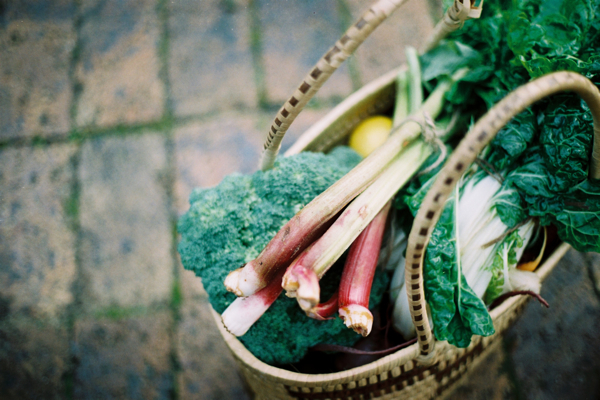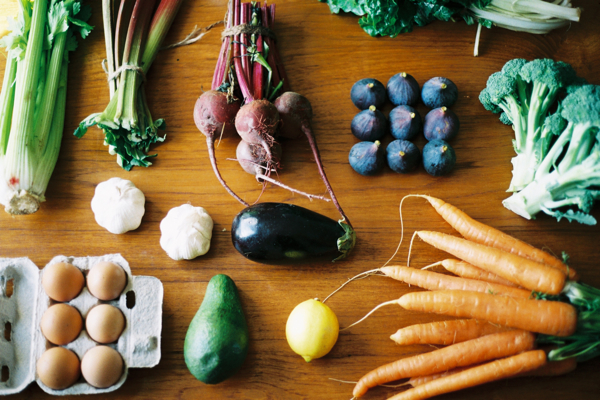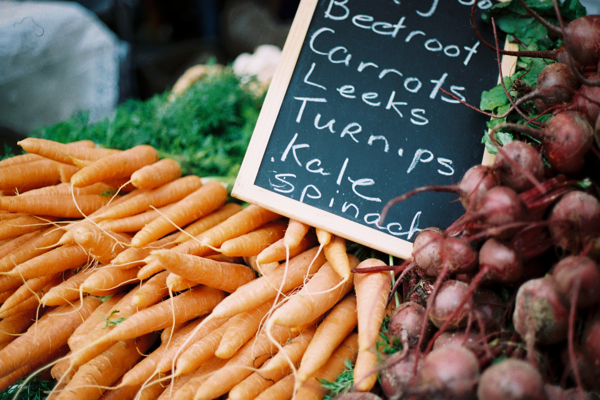
One of the first "BUTS" that comes up in conversations about local/regional/organic food is that it is too expensive for average people (and students!). So I decided to test this assumption by comparing our weekly market shopping with two supermarkets in Stellenbosch. One supermarket is known for its very affordable prices and the fact that you can pick your own produce, the other for its unfailing quality and organic range. For the purpose of this exercise, let us call the former F&V and the latter WW.
|
| Organic Market (all organic) | F&V
| WW (organic = o) |
Product | Quantity |
|
|
|
Yogurt (full cream) | 1 L | R45 | R19.99 | R25.95 |
Yogurt (low fat) | 1 L | R25 | R19.99 | R25.95 |
Milk | 1 L | R12 | R9.99 | R11.95 (o) |
Whole Chicken | 1 kg | R35 | R23 | R35.95 (o) |
Eggs | 6 | R12 | - | R7.45 |
Hummus | 120 ml | R25 | - | R11.95 |
Butternuts | 1 kg | R30 | R4.99 | R6.99 |
Sweet Potato | 1 kg | R10 | R4.99 | R10 |
Potato | 1 kg | R10 | R6.99 | R11.50 (o) |
Beetroot | A bunch | R7 | R5 | R13 (baby) |
Broccoli | 1 kg | R30 | R25 | R26.99 |
Carrots | 1 kg | R10 | R4 | R14 |
Spinach | 1 kg | R24 | R15 | R64.95 |
Tomatoes | 1 kg | R10 | R12.99 | R13.99 |
Lettuce | A head | R5 | R5.50 | R7.89 |
Bananas | 1 kg | R17 | R10 | R13.99 |
Pineapples | 1 | R12 | R5 | R5.95 |
Oranges | 1 kg | R10 | R4.99 | R6.95 |
Gooseberries | 1 kg | R50 | R113 | R84.95 |
Naartjies | 1 kg | R10 | R12.99 | R14.95 |
Guavas | 1 kg | R20 | R7.99 | R20 |
I was unable to find the market's variety of organic produce in the two local supermarkets and therefore had to compare some of the organic market prices to the cost of conventionally-grown produce in supermarkets. WW had some organic produce, indicated by an ‘o’.
In the case of spinach and gooseberries, WW only had smaller quantities available. I used the price for 200g spinach (R12.99) to calculate the price for 1 kg of spinach (R64.95), and R16.99 for 200g of gooseberries to calculate the price of R84.95 for 1kg. F&V also only had smaller quantities of gooseberries and the 1kg price was calculated the same as WW’s.
Nevertheless, this table clearly indicates that the organic market’s prices are not necessarily higher. The market has the highest price for only 28.6 percent or 6/21 of the produce, mostly in comparison to conventional prices. Compared to the three organic vegetables I could find in supermarkets, the market had a higher price of 5c for only one product.

It is important to remember that the prices paid for non-organic foods don’t include the costs of environmental degradation like (water and air) pollution and soil deterioration, which are common effects of chemical farming. This is because we don’t pay the environment for its resources (e.g. soil) or services (e.g. pollination or water purification in the water cycle). I’d much rather pay an extra 5c for organic produce, because I know that not only is the farmer getting a fair price for her produce and can continue farming, but I’m also helping her to look after the parts of the environment necessary to grow MY food. If I don’t pay that 5c now, my great grandchildren might have to pay it (with interest) in other ways in the future.
So buy organic, but also buy from the farmer if you can. If more of the money you spend on food ends up in the farmer’s pocket (as opposed to the middleman’s), she has more money to invest in the conservation of environment that we depend on.









